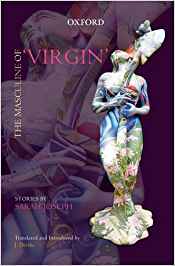Recently, in a talk given by Professor Nigel Leask at the University of Delhi on Scotland’s national poet, Robert Burns, he struck a comparison between Burns and Rabindranath Tagore. He mentioned how both appropriated Scottish ballads and folk music in their respective compositions and therefore, how both could be aptly titled ‘people’s poet’ or ‘poet of the soil’. This talk was delivered at a time when I was reading Mohammad A. Quayum’s collection of scholarly essays on Tagore. Being born a Bengali, I was initiated into the culture of Rabindra Vandana (worship) from very early childhood. While I was aware of Tagore’s indebtedness to western influences, I did not bother to find out the specific details of his borrowings, and like all Bengalis, took pride in Tagore’s nobel winning eternal genius. It is only when I started teaching his Home and the World and his essays on nationalism to undergraduate students, that a fresh tryst with his writings and thoughts began: a fresh admiration grew for the poet and the contemporaneity and relevance of his political philosophy. We have always known Tagore as a poet-patriot, but his patriotism is not without shades and cannot be merely reduced to blind nation worship, or unquestioning acceptance of ways followed by political leaders. And for this, he had to pay his price by facing criticism from contemporary political leaders who alleged him of appeasing the British.
July 2013, volume 37, No 7

